
SWITZERLAND Lausanne - 2022
The Department of Plant Molecular Biology (DBMV) aims to contribute to the challenges that humanity will face in the coming century, particularly that of feeding a population that will grow from 6.5 to 9 billion people by 2050 in a context of global warming.
Progress in understanding the fundamental aspects of plant molecular biology will be essential to developing agricultural production adapted to renewable energy sources and respectful of the environment.
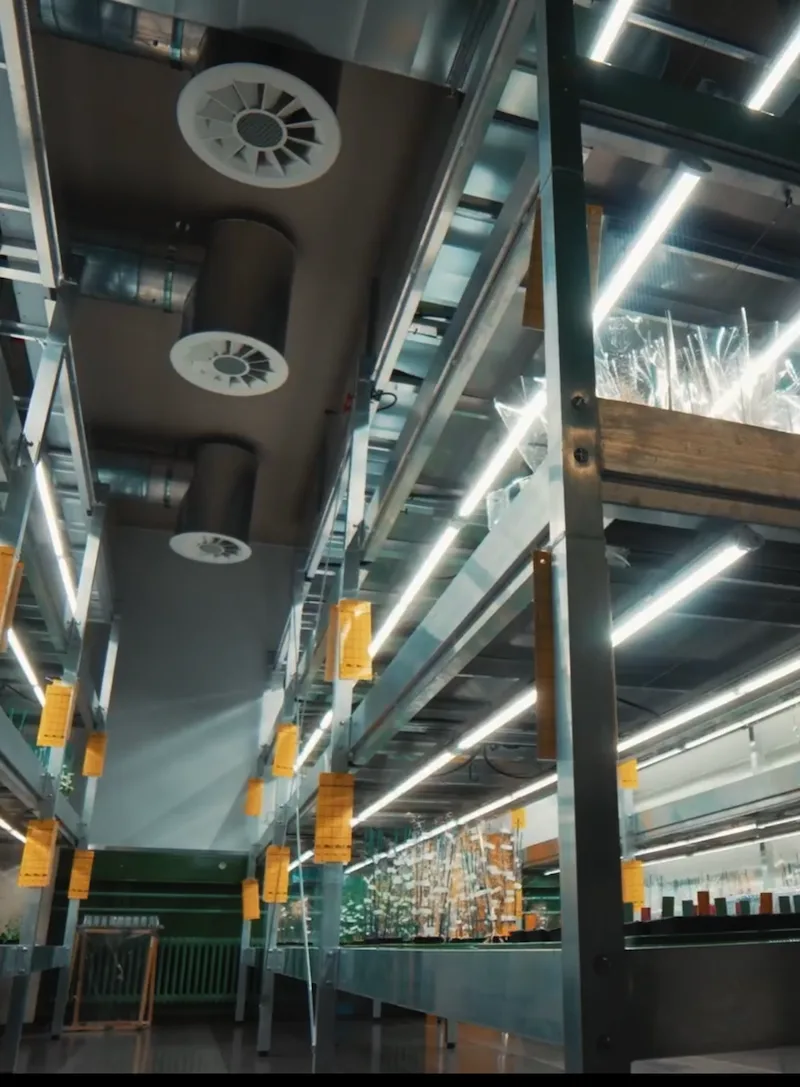

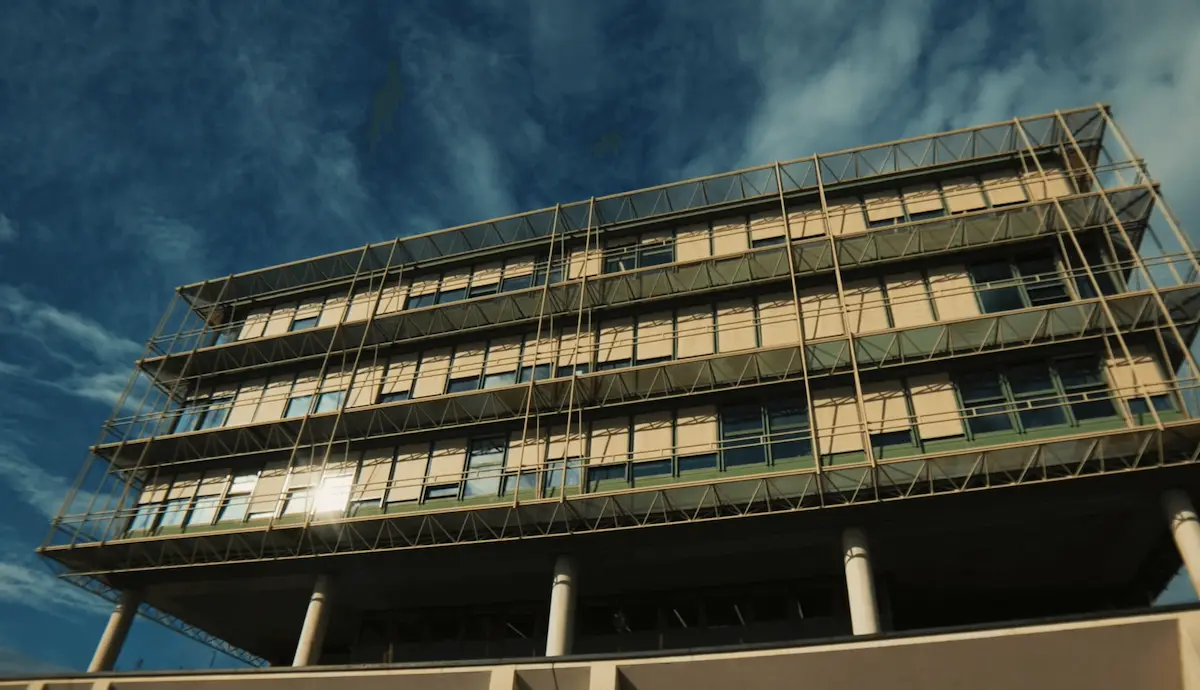
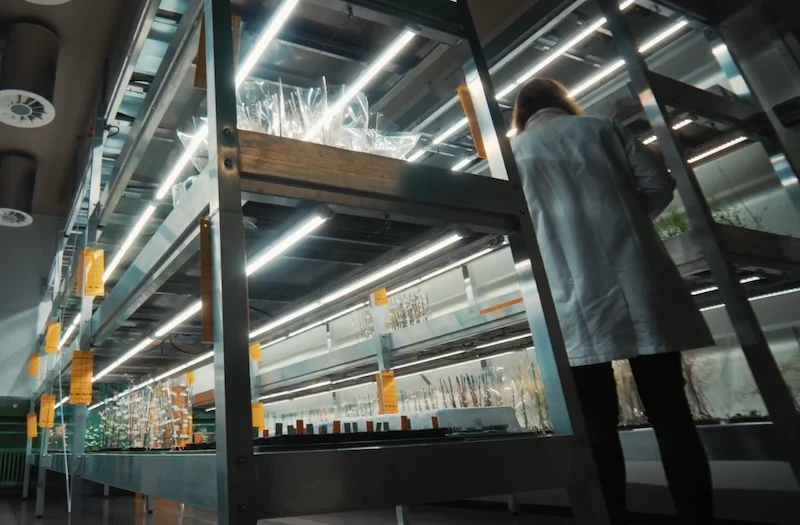

The 732 neon tubes installed in the university's 13 research rooms are showing signs of malfunction. Furthermore, their production has been prohibited since August 24, 2023, in accordance with regulations concerning T5 and T8 fluorescent tubes.
Reduction of
energy consumption
Lighting adapted to
humid and misting areas
Adaptation to a dimming system,
current fixings and existing wiring
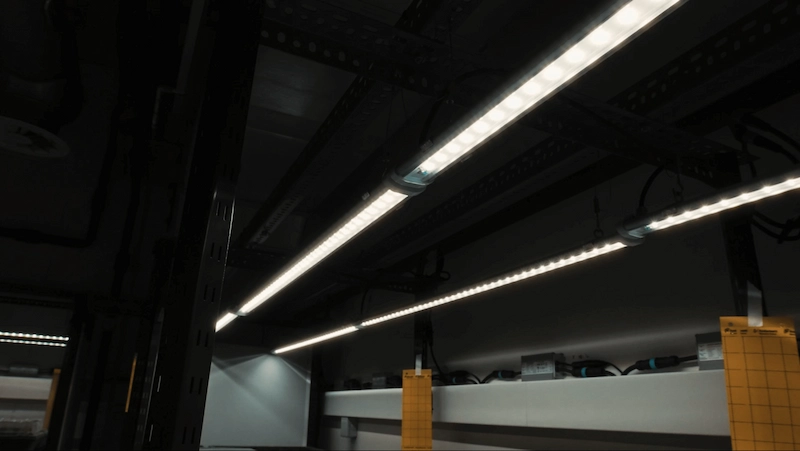


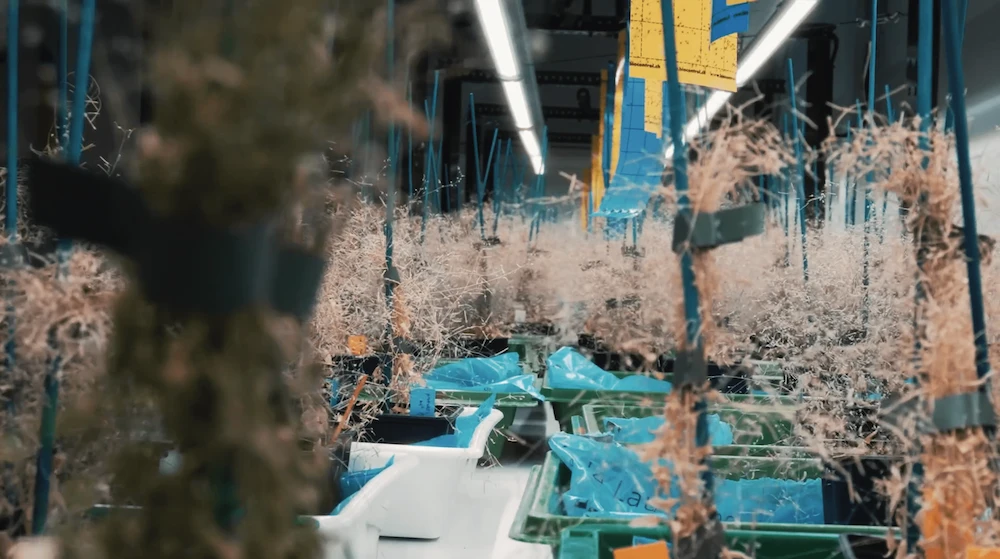


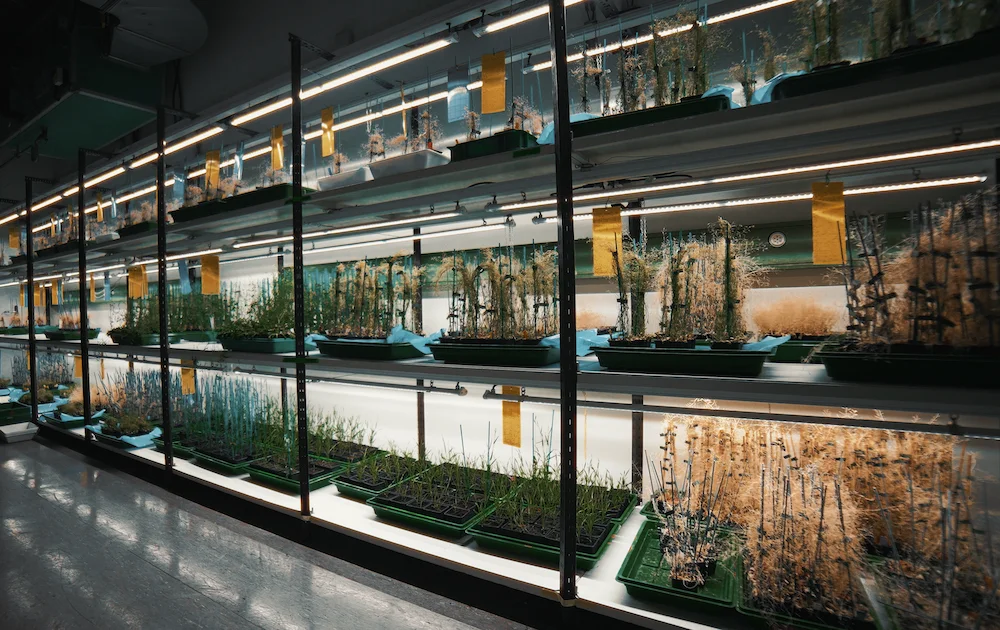
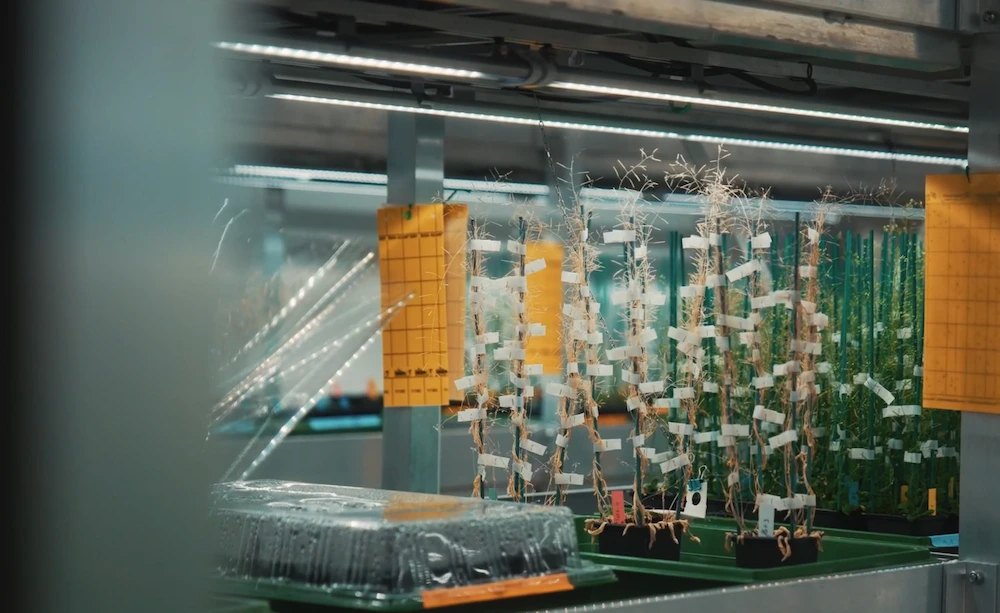
An intelligent, state-of-the-art installation
58% reduction in energy consumption on
Maintaining the same
level of brightness
Control of lighting variation
with automation systems
As part of this project, we implemented a dual optimization of energy consumption:
Replacement of 732 neon tubes 36/58W with LED bars 30 to 60W, reducing consumption by 58%, or 19 kWh, while maintaining equivalent light performance.
Integration of 0-10v automation systems for intelligent management of lighting variation.
Optional integration of a PAR PPFD probe is possible.
Each research room has been equipped with 1 to 6 automation systems, offering precise lighting management for 2 to 12 distinct zones. This configuration allows for adjusting the luminosity by varying the intensity of the lights according to the specific needs of the researchers.
To ensure perfect compatibility with the existing infrastructure, we have designed a custom solution. This includes the development of UV-resistant transformers, fixings, cables, and click connectors, offering quick and flexible installation. This design is intended to simplify long-term maintenance, thanks to fully replaceable components individually.
At F.O.G, each component of the luminaires can be replaced in case of failure, thus offering an economical and sustainable solution. This approach allows the producer himself to carry out the interventions, thus reducing maintenance costs while ensuring optimal use over the long term.
With F.O.G, enjoy an innovative solution, tailor-made to meet the requirements of your infrastructure, while ensuring maximum optimization of your energy consumption.